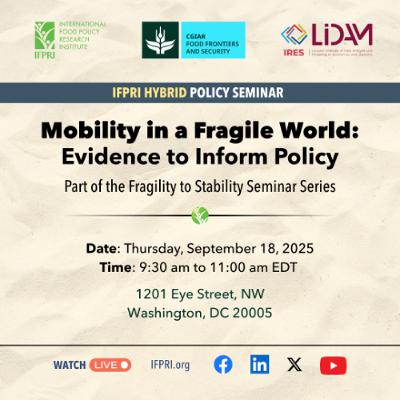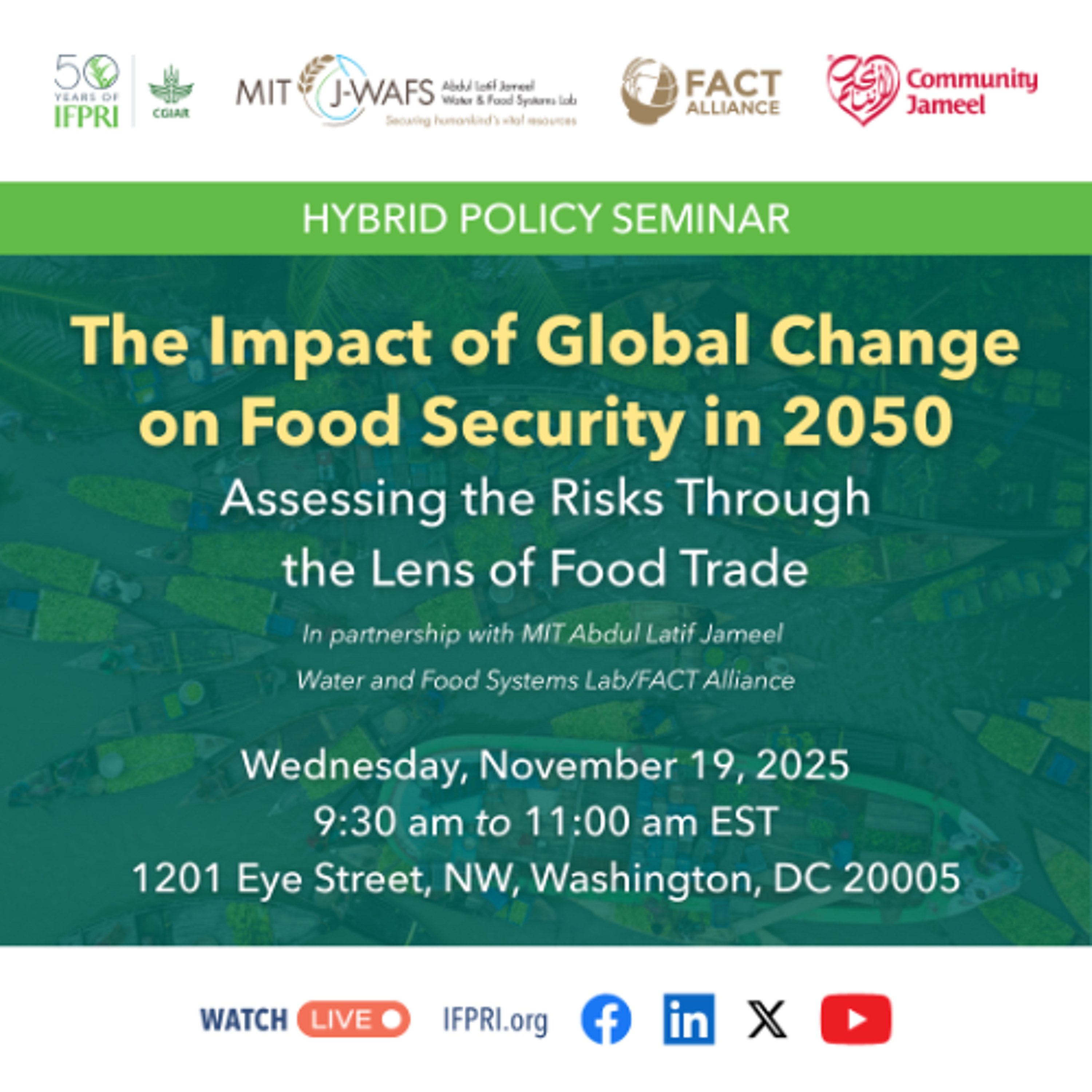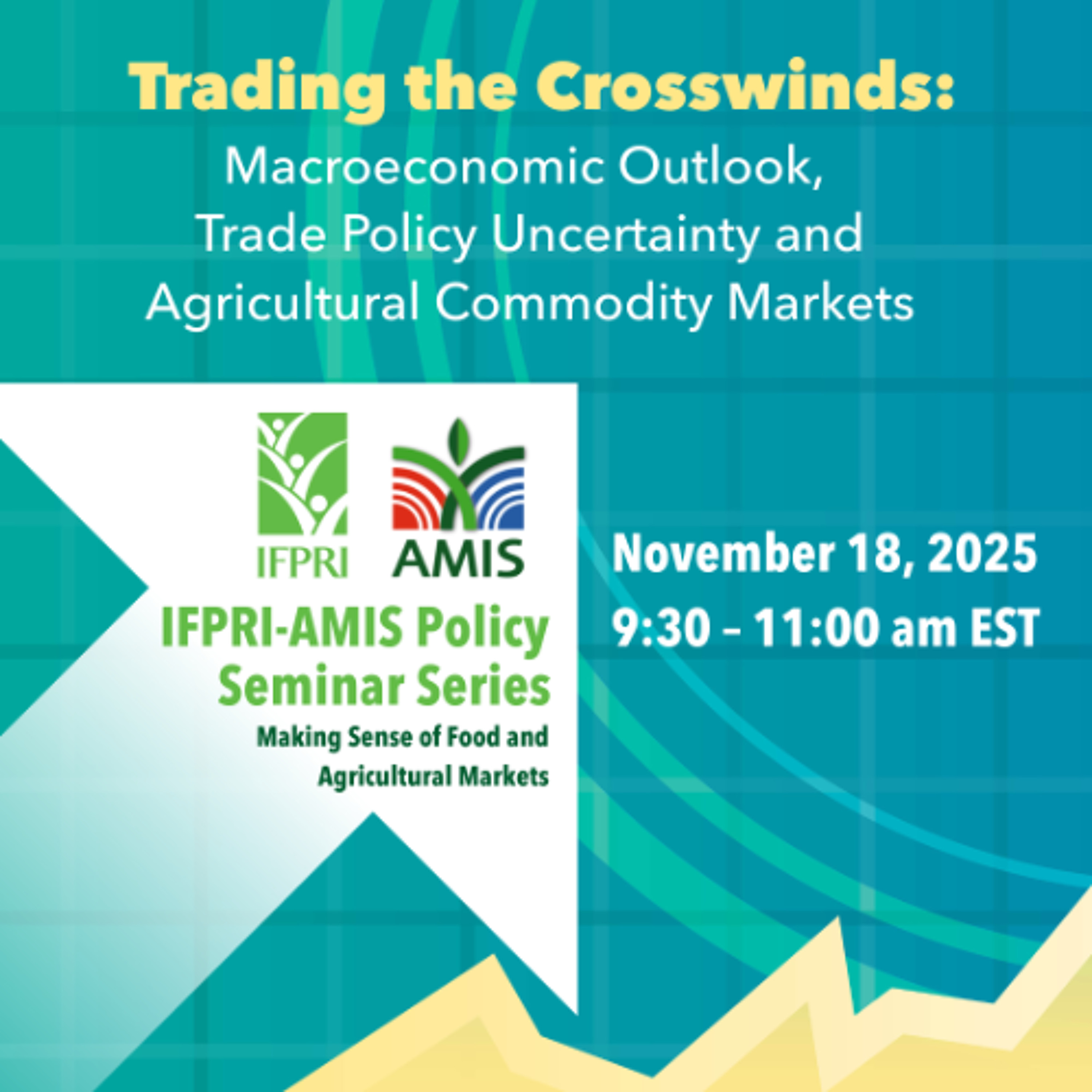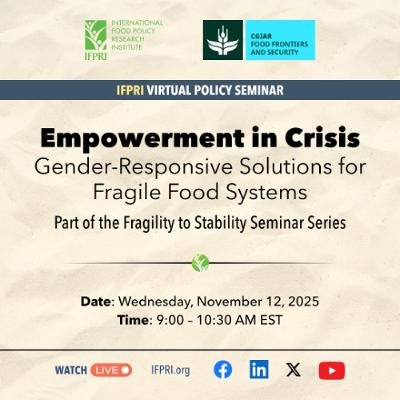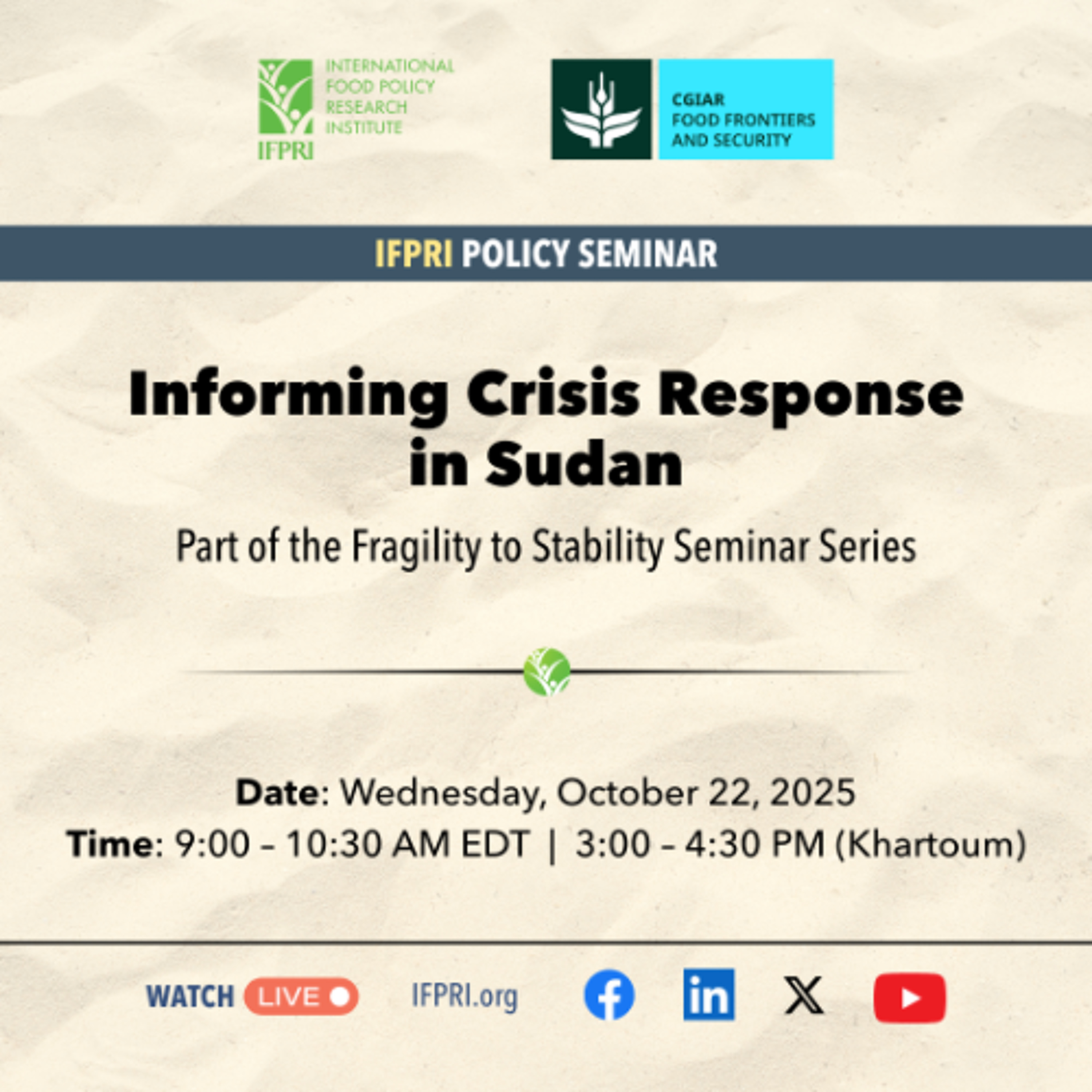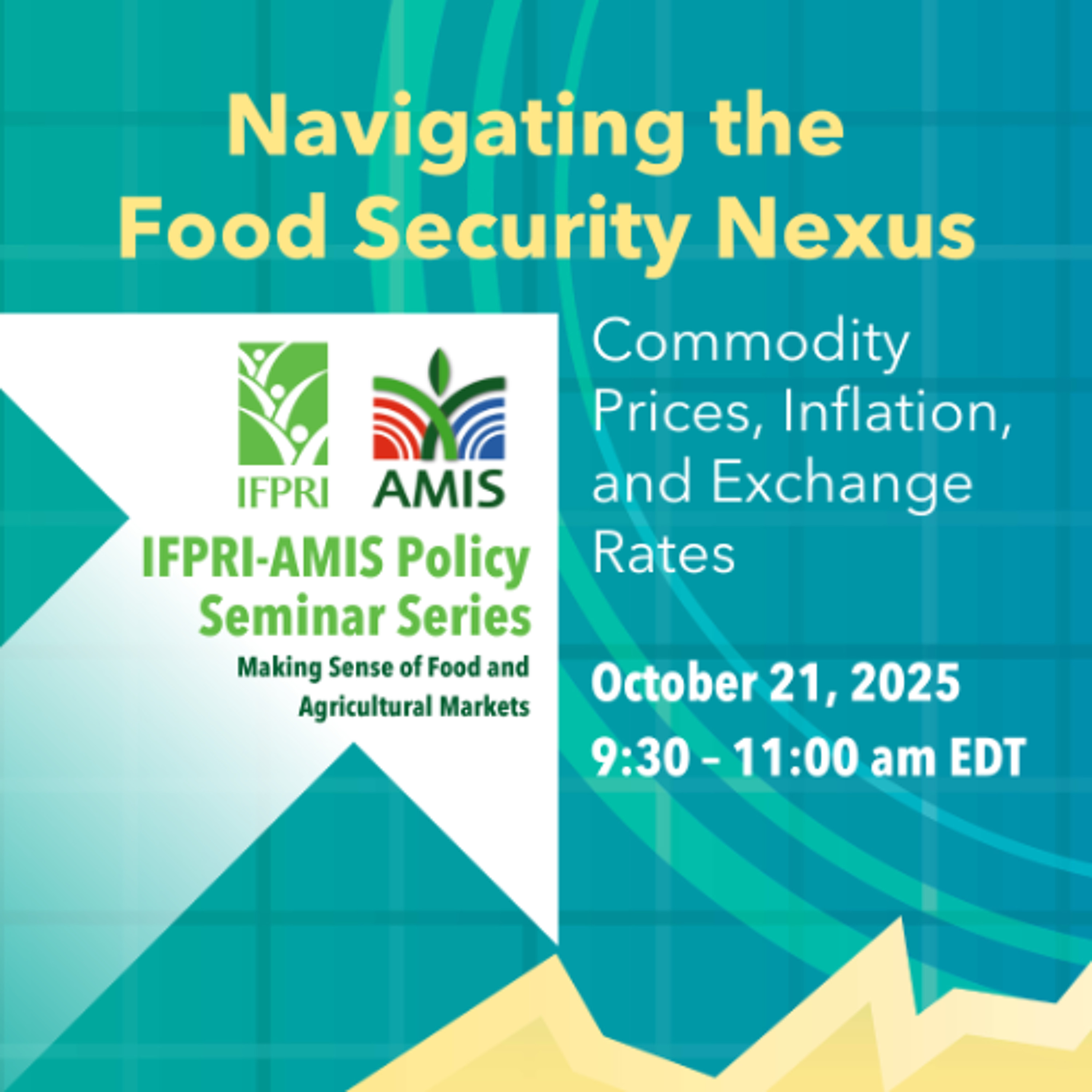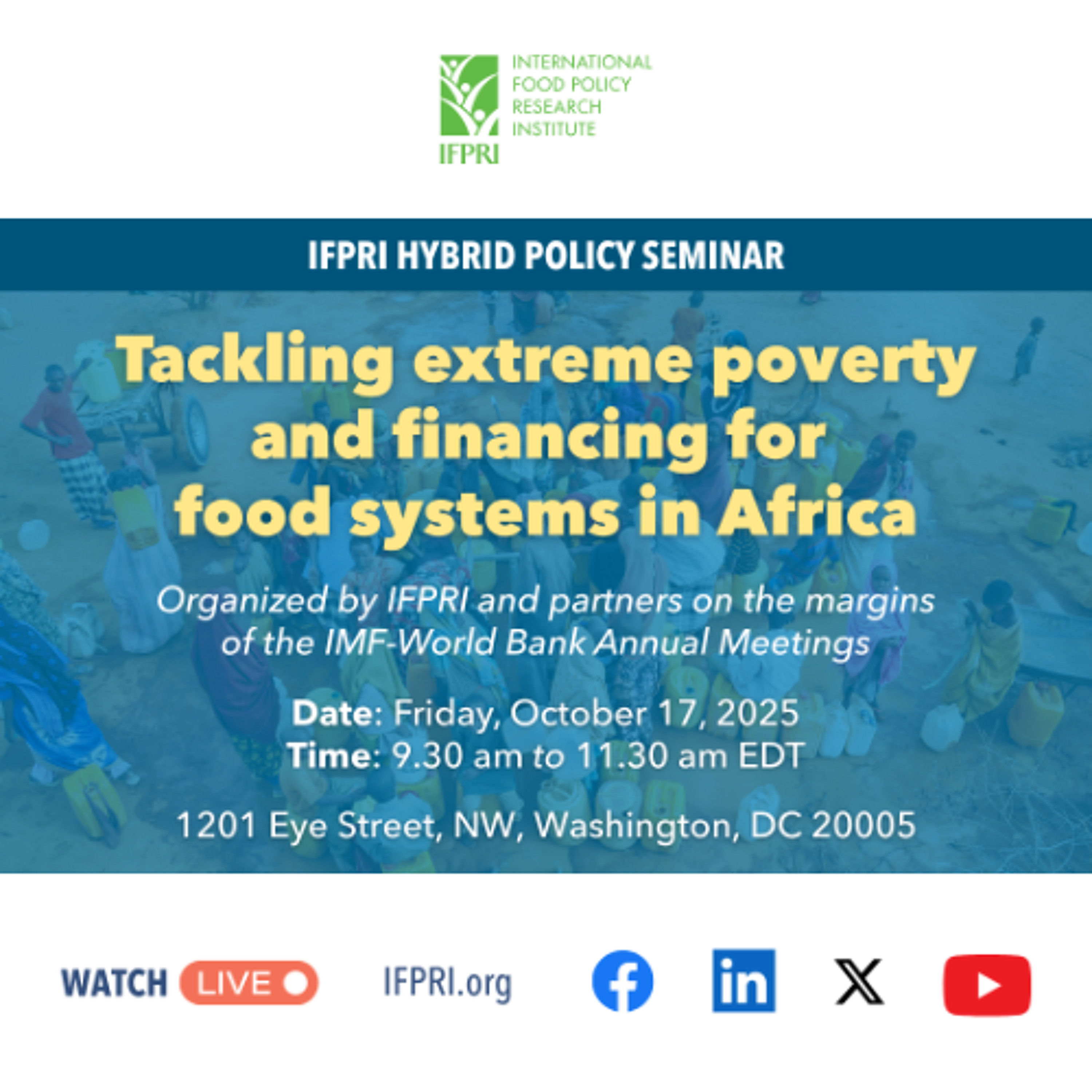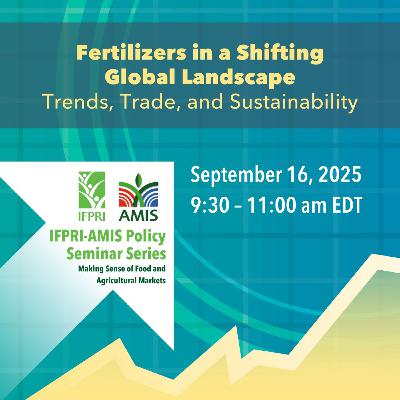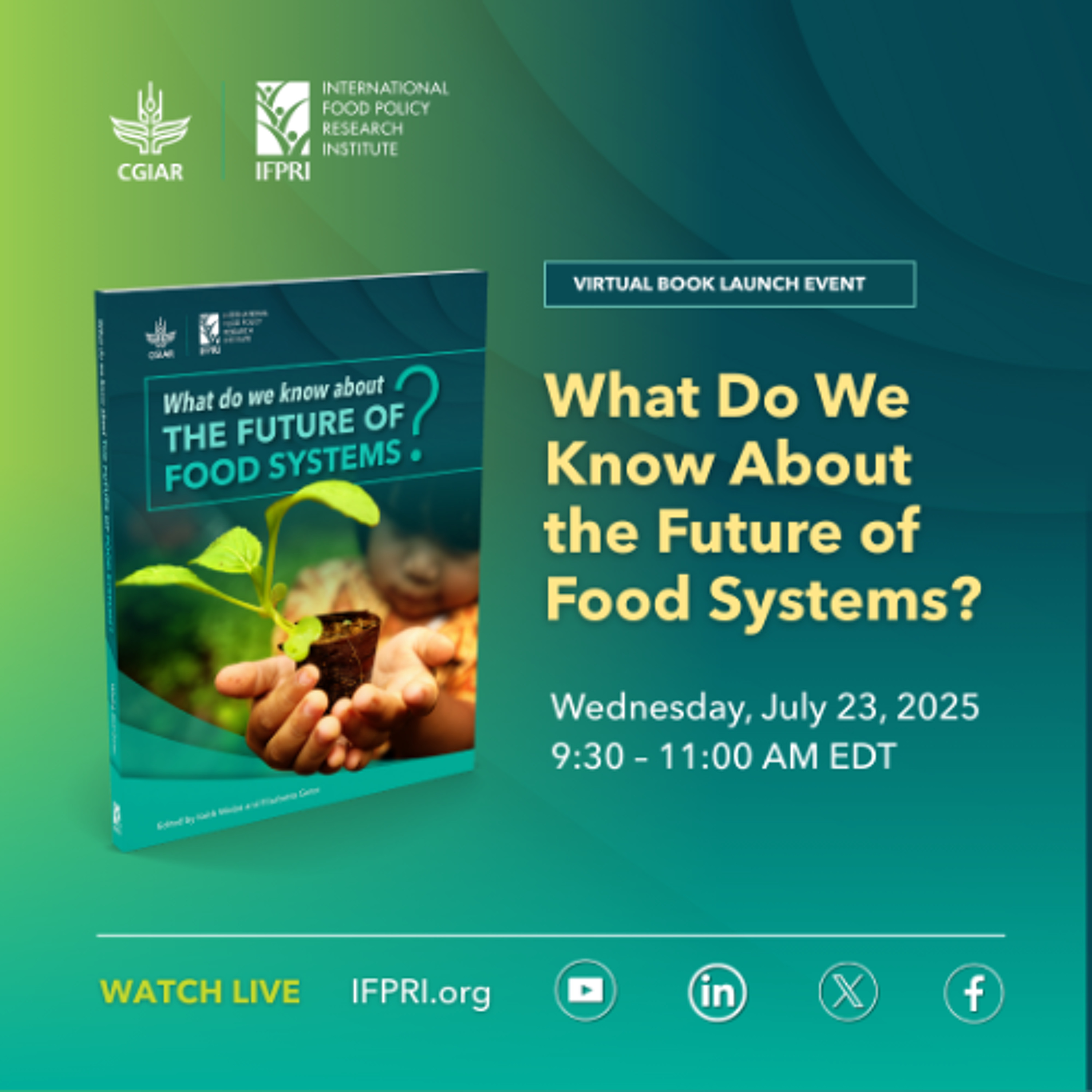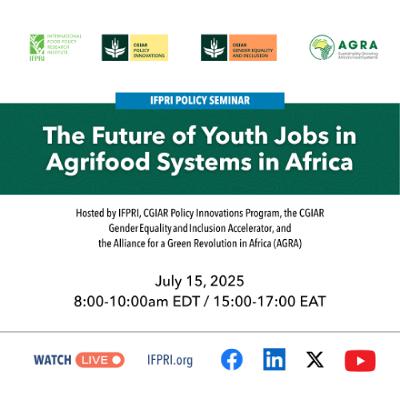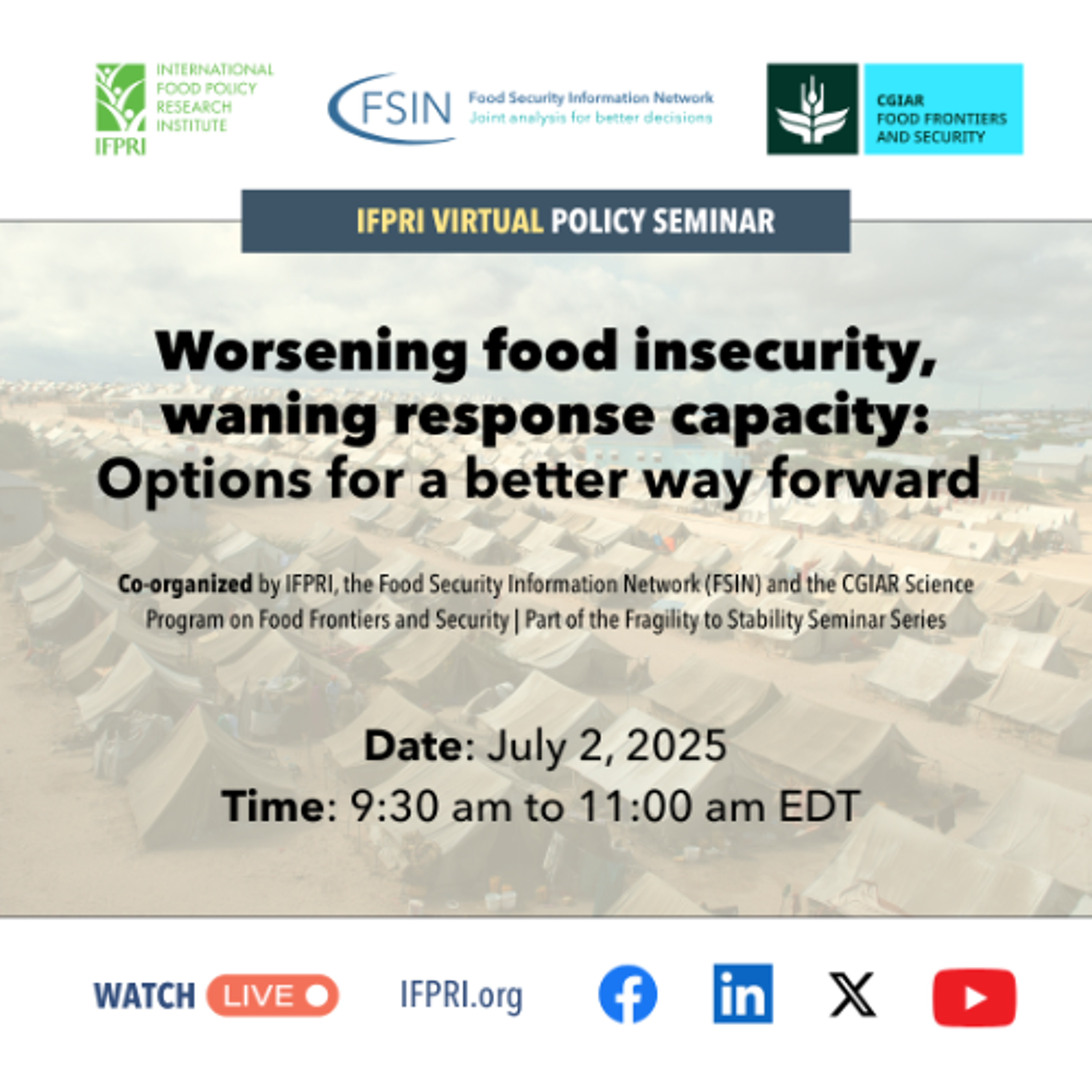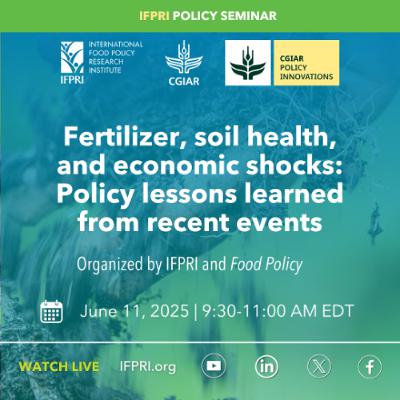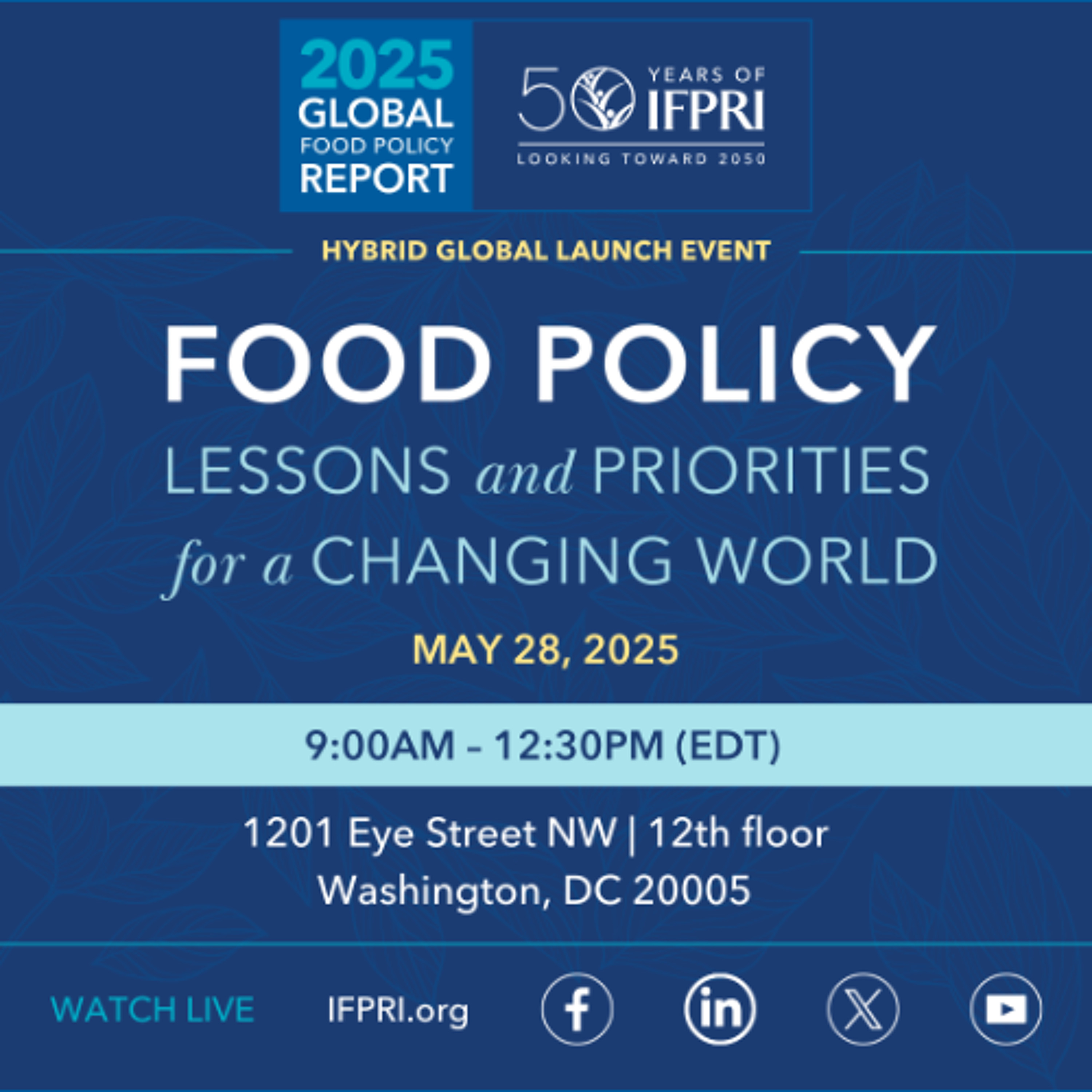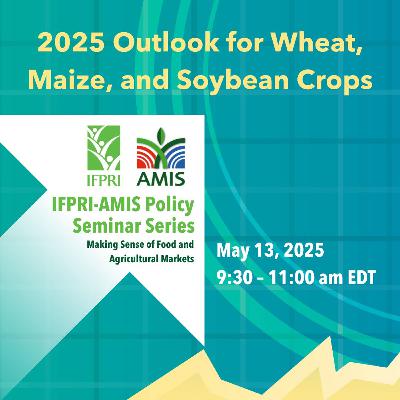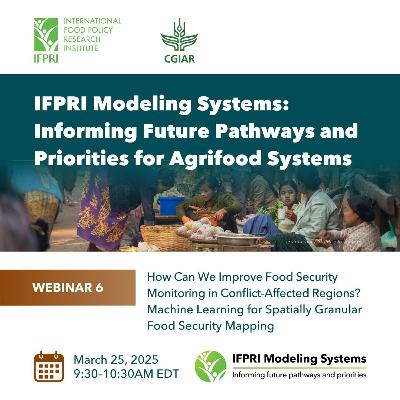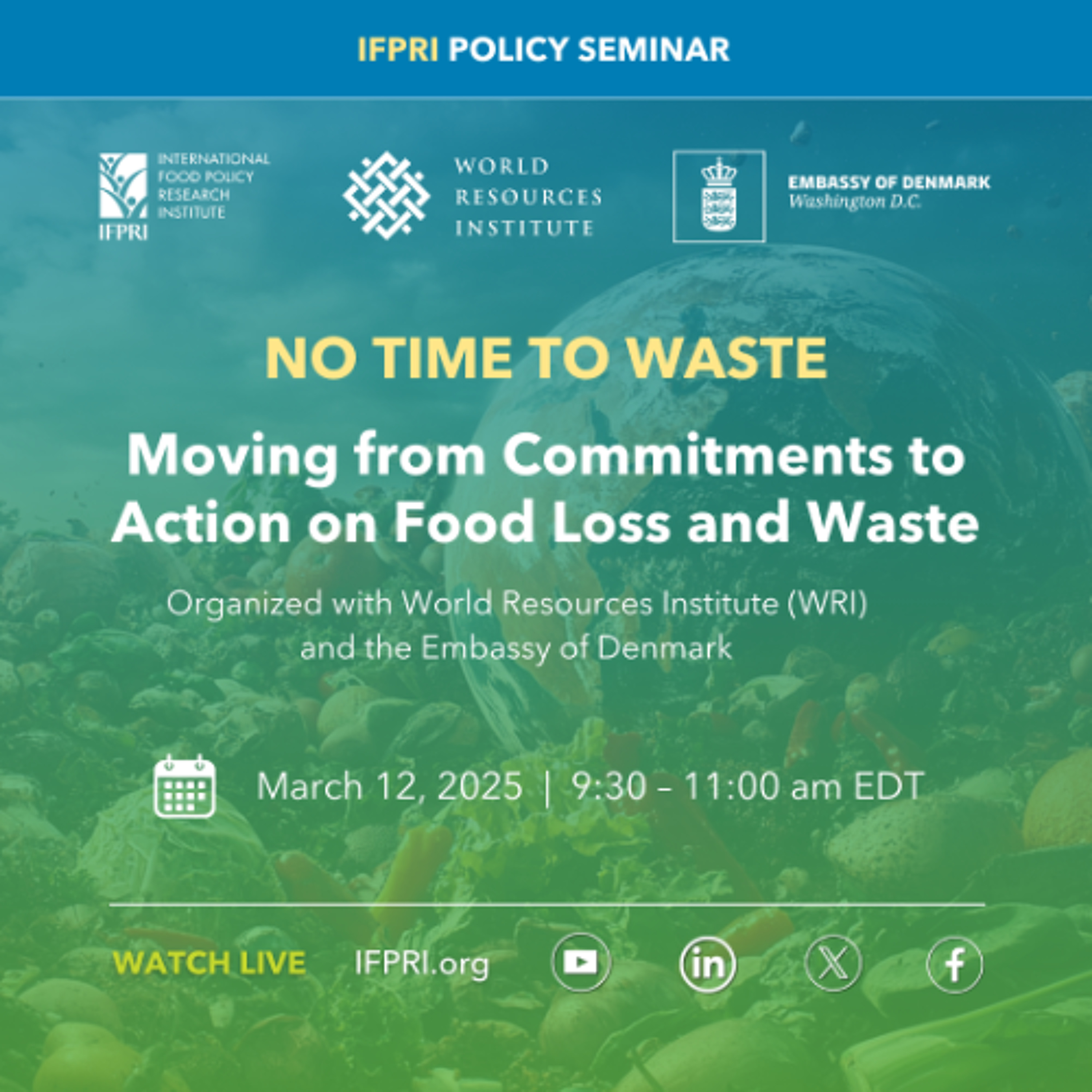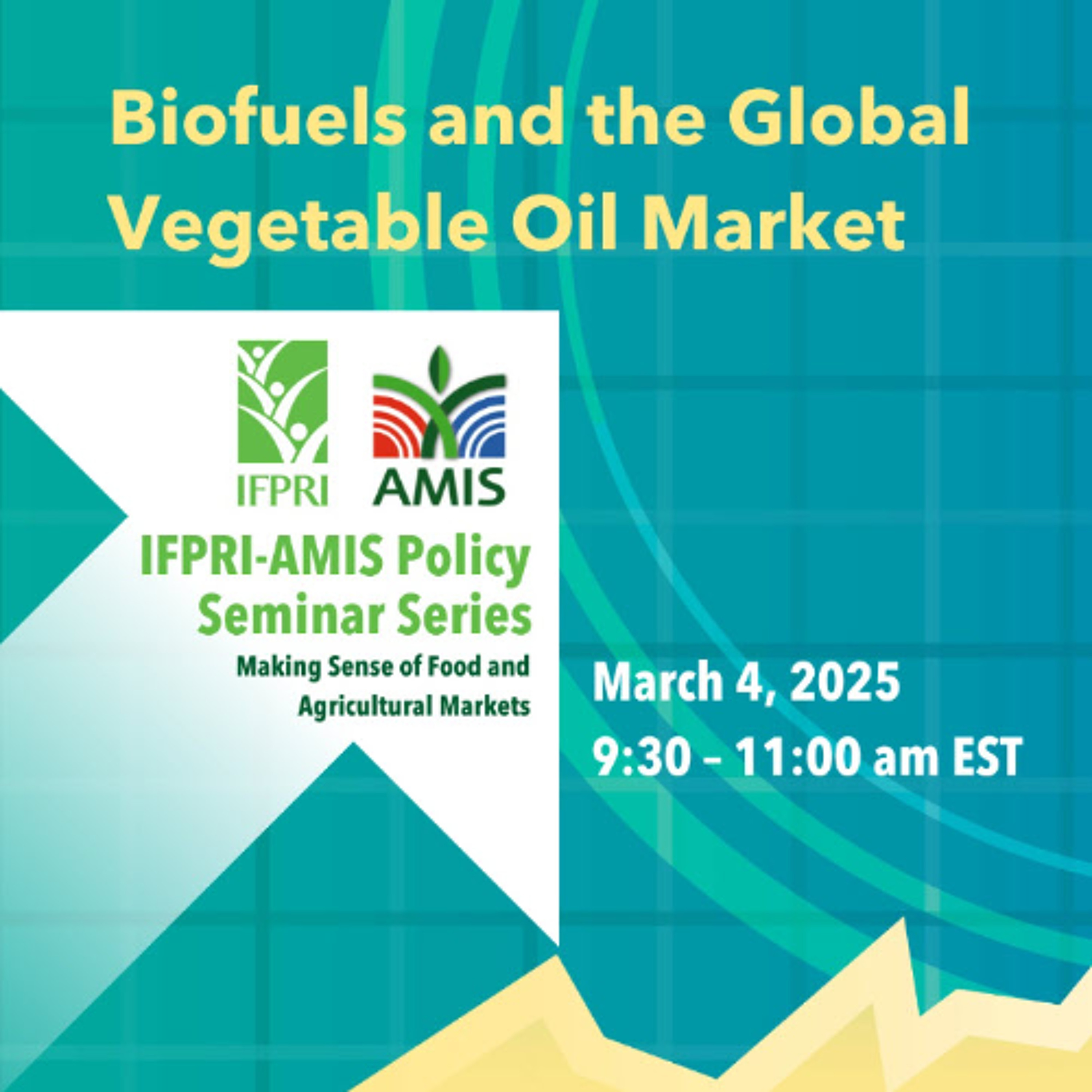Mobility in a Fragile World: Evidence to Inform Policy
Update: 2025-09-18
Description
Policy Seminar | IFPRI Policy Seminar
Mobility in a Fragile World: Evidence to Inform Policy
Co-organized by IFPRI, the CGIAR Science Program on Food Frontiers and Security, and the Louvain Institute of Data Analysis and Modeling in Economics and Statistics (LIDAM), IRES | Part of the Fragility to Stability Seminar Series
September 18, 2025
Migration today reflects a complex interplay of demographic pressures, conflict, poverty, climate change, and economic shocks. Worldwide, one in every seven people is a migrant—that is, someone who changes his or her country of usual residence, irrespective of the reason for migration—or a refugee forced to leave his or her home, often without warning, for reasons including war, violence, or persecution. Over the past two decades, international migration and forced displacement have surged, with more than 100 million additional people on the move—a large share of whom originate from rural areas, driven by a lack of economic opportunities, environmental degradation, and insecurity.
The number of refugees has doubled since the early 2000s, with most hosted by low- and middle-income countries. Ongoing conflicts and intensifying climate crises have compounded vulnerabilities, leaving 80% of displaced people facing acute food insecurity. Climate change-related displacement disproportionately affects women, who are also at heightened risk of violence and exploitation during migration journeys and in host communities.
This policy seminar will explore these complex dynamics and assess how economic analysis, machine learning, and policy innovation can contribute to more inclusive, equitable, and effective responses to migration and forced displacement.
Moderator Welcome Remarks
Katrina Kosec, Interim Deputy Director, CGIAR Science Program on Food Frontiers and Security; Senior Research Fellow, IFPRI
Opening Remarks
Ruth Hill, Director, Markets, Trade, and Institutions, IFPRI
Setting the Stage: The Migration Challenge
Anna Maria Mayda, Professor of Economics, School of Foreign Service and Department of Economics, and Incoming Director, Institute for the Study of International Migration (ISIM), Georgetown University (GU)
Research in Action: This three-part session will showcase how current research is shaping better migration policies
Silvia Peracchi, Postdoctoral Fellow, Institute of Economics and Social Research (IRES), Louvain Institute of Data Analysis and Modeling in Economics and Statistics (LIDAM), UCLouvain
Francisco Ceballos, Research Fellow, IFPRI
Thomas Ginn, Research Fellow, Center for Global Development
Building the Evidence Base for Smarter Policy in Fragile and Conflict-Affected Contexts: What Are the Gaps and Needs
Panelists
Andrew Harper, Special Advisor on Climate Action, the United Nations High Commissioner for Refugees (UNHCR)
Damien Jusselme, Head, Data Science and Analytics (Foresight), International Organization for Migration (IOM)
Jean-Francois Maystadt, Professor, Fonds de la Recherche Scientifique (FNRS), Louvain Institute of Data Analysis and Modeling in Economics and Statistics (LIDAM) / Institut de Recherches Économiques et Sociales (IRES), Université catholique de Louvain, and Lancaster University Management School
Closing Remarks
Kate Ambler, Senior Research Fellow, IFPRI
More about this Event: https://www.ifpri.org/event/mobility-in-a-fragile-world-evidence-to-inform-policy/
Subscribe IFPRI Insights newsletter and event announcements at www.ifpri.org/content/newsletter-subscription
Mobility in a Fragile World: Evidence to Inform Policy
Co-organized by IFPRI, the CGIAR Science Program on Food Frontiers and Security, and the Louvain Institute of Data Analysis and Modeling in Economics and Statistics (LIDAM), IRES | Part of the Fragility to Stability Seminar Series
September 18, 2025
Migration today reflects a complex interplay of demographic pressures, conflict, poverty, climate change, and economic shocks. Worldwide, one in every seven people is a migrant—that is, someone who changes his or her country of usual residence, irrespective of the reason for migration—or a refugee forced to leave his or her home, often without warning, for reasons including war, violence, or persecution. Over the past two decades, international migration and forced displacement have surged, with more than 100 million additional people on the move—a large share of whom originate from rural areas, driven by a lack of economic opportunities, environmental degradation, and insecurity.
The number of refugees has doubled since the early 2000s, with most hosted by low- and middle-income countries. Ongoing conflicts and intensifying climate crises have compounded vulnerabilities, leaving 80% of displaced people facing acute food insecurity. Climate change-related displacement disproportionately affects women, who are also at heightened risk of violence and exploitation during migration journeys and in host communities.
This policy seminar will explore these complex dynamics and assess how economic analysis, machine learning, and policy innovation can contribute to more inclusive, equitable, and effective responses to migration and forced displacement.
Moderator Welcome Remarks
Katrina Kosec, Interim Deputy Director, CGIAR Science Program on Food Frontiers and Security; Senior Research Fellow, IFPRI
Opening Remarks
Ruth Hill, Director, Markets, Trade, and Institutions, IFPRI
Setting the Stage: The Migration Challenge
Anna Maria Mayda, Professor of Economics, School of Foreign Service and Department of Economics, and Incoming Director, Institute for the Study of International Migration (ISIM), Georgetown University (GU)
Research in Action: This three-part session will showcase how current research is shaping better migration policies
Silvia Peracchi, Postdoctoral Fellow, Institute of Economics and Social Research (IRES), Louvain Institute of Data Analysis and Modeling in Economics and Statistics (LIDAM), UCLouvain
Francisco Ceballos, Research Fellow, IFPRI
Thomas Ginn, Research Fellow, Center for Global Development
Building the Evidence Base for Smarter Policy in Fragile and Conflict-Affected Contexts: What Are the Gaps and Needs
Panelists
Andrew Harper, Special Advisor on Climate Action, the United Nations High Commissioner for Refugees (UNHCR)
Damien Jusselme, Head, Data Science and Analytics (Foresight), International Organization for Migration (IOM)
Jean-Francois Maystadt, Professor, Fonds de la Recherche Scientifique (FNRS), Louvain Institute of Data Analysis and Modeling in Economics and Statistics (LIDAM) / Institut de Recherches Économiques et Sociales (IRES), Université catholique de Louvain, and Lancaster University Management School
Closing Remarks
Kate Ambler, Senior Research Fellow, IFPRI
More about this Event: https://www.ifpri.org/event/mobility-in-a-fragile-world-evidence-to-inform-policy/
Subscribe IFPRI Insights newsletter and event announcements at www.ifpri.org/content/newsletter-subscription
Comments
In Channel

